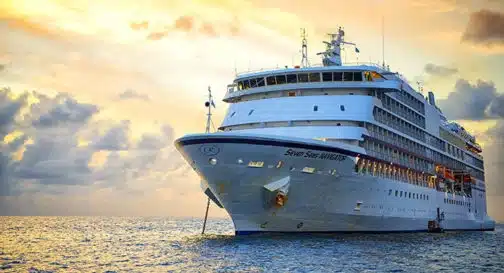Hawaii Maritime Worker Injury Lawyer
Hawaii Maritime Employee Accident Attorney Preston Easley Assists Injured Seamen, Stevedore, and Other Maritime Workers With Their Workers’ Compensation and Third Party Claims in Honolulu and Throughout HI
Jones Act Seaman Accident Attorney Hawaii
Maritime workers are generally exposed to more risk of injury than other types of workers. However, this does not mean accidents aren’t as devastating. Maritime workers like any other type of workers are entitled to compensation when they suffer injuries while at work. However, maritime law presents many complexities. It is wise to seek the assistance of a Hawaii maritime worker injury lawyer to guide you through the process of seeking compensation.
The Law offices of Preston Easley actively fights to defend the rights of injured maritime workers. Mr. Easley brings his experience working in the maritime industry as well as serving in the navy to the aid of injured maritime workers.
He provides an in-depth perspective of maritime law and fights to defend the rights of injured workers. He has helped both union and non-union workers recover substantial sums in compensation for their injuries and losses. Contact us now to schedule an appointment for a free consultation with attorney Preston Easley about your jones act claim.
Maritime Laws and Claims that a Hawaii Maritime Worker Injury Lawyer Can Assist You With
Preston Easley Esq represents both union and non-union maritime workers that have been injured while on the job. His clients include:
- Cruise ship crew
- Commercial drivers
- Dock workers
- Commercial fishermen crew
- Shipyard workers
- Barge crew workers
- Ferry workers
- Tugboat workers
- Dredge workers
- Marine construction workers
- National steel and shipbuilding company (NASSCO) maritime workers
- Maritime forklift and crane operators and many more
He also represents the families of maritime workers who have lost their lives while on the job. Attorney Preston Easley will fight to protect your rights and recover full compensation for your injuries or losses.
Are you a maritime worker? Have you been injured while on the job? Contact the law offices of Preston Easley for a free consultation. Preston Easley is an experienced Hawaii maritime worker injury attorney. You can rely on his experience working in the maritime industry and serving in the Navy to provide you with in-depth insight on your jones act case, legal rights, and best options. Contact our jones act lawyer now to schedule your appointment.
About Hawaii
Thousands of people move to Hawaii every year. Tens of thousands more visit the islands for holiday annually. The islands attract people from all walks of life for the great weather, friendly natives, and picturesque landscapes. However, living in Hawaii is like living in any other part of the US. It is one of the states of the US. Therefore federal law still applies in Hawaii. However, living on any of the islands that make up the state will provide you with an experience that many people never forget.
Frequently Asked Questions about Maritime Worker Injury Cases in Hawaii
Injured seamen are not entitled to workers’ compensation under federal or state law. However, they are entitled to three different types of compensation under federal law.
1) Negligence: Seamen can sue their employers for negligence under the Jones Act. The Jones Act requires maritime employers to provide seaman with a reasonably safe work environment and maintain the vessel on which the seamen work and keep it in a reasonably safe condition. Any unsafe condition on a vessel, no matter the size of the vessel, can result in liability. Unlike civil tort law that governs most other types of personal injuries, the burden to prove an employer’s negligence is low under the Jones Act. Injured Seamen only need to show that the negligence of their employer played some part (even if very small) in their injury. Seamen are therefore entitled to compensation under the Jones Act even if the employer’s negligence contributed minimally to the incident that caused the injury.
2) Compensation for the unseaworthiness of the vessel: A seaworthy vessel under maritime law is a vessel whose design, maintenance, and ability to perform its intended function are reasonable. A vessel is deemed to be unseaworthy if it did not provide the seaman with a reasonably safe environment for work or suitable appliances for the seaman to perform his duties in reasonable safety. Unseaworthiness isn’t about negligence. The owner of the vessel will be held liable even if they acted reasonably. The vessel would be considered unseaworthy if any part of it was deemed to be unfit for its intended function.
3) Seamen are entitled to receive cure and maintenance and cure: Maritime law requires employers to provide seamen with maintenance and cure when they are injured while working aboard a vessel. This is required regardless of where the fault lies. Maintenance may mean providing the injured seaman with room and board while they recover. It also means covering expenses such as their rent, property taxes, food, and utilities while they recover. However, expenses such as internet and phone are not covered. Cure means covering the medical expenses of the injured seaman. The employer is required to provide both cure and maintenance until the injured seaman reaches maximum medical improvement.
A seaman under maritime law is defined as a person that spends a significant amount of their time working on a vessel as a crewmember or captain. Maritime workers such as harbor workers that are not considered seamen aren’t covered by the Jones Act. They are instead covered by the Longshore and Harbor Workers’ Compensation Act. This federal law covers employees that work near or on water but are not seamen. These include harbor workers, people working in shipyards, and those that work on docks.
Injured maritime workers eligible for compensation under the Longshore Act typically receive more in compensation than regular workers governed by the state’s workers compensation act. For example, state workers are entitled to 60% of their weekly wage under workers’ compensation. However, under the Longshore Act, maritime workers receive 66 2/3% of their weekly wage.








